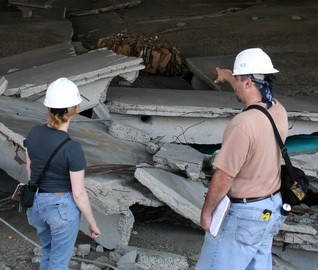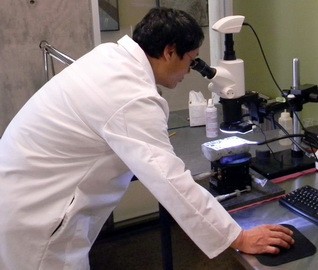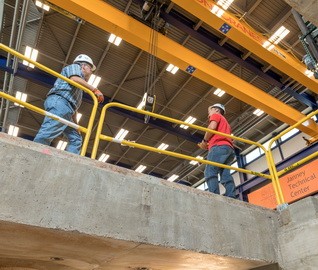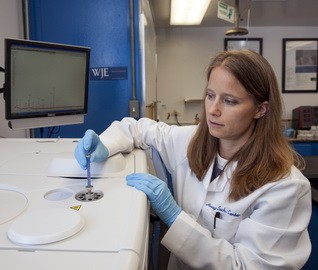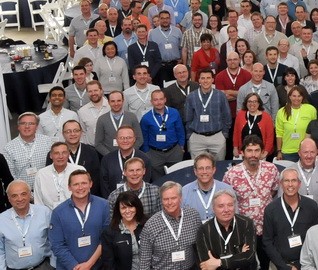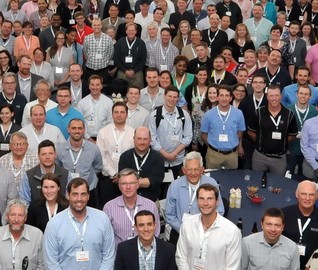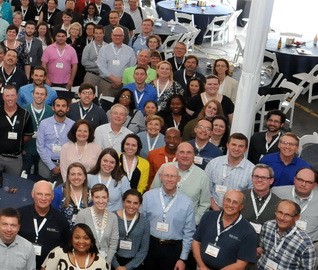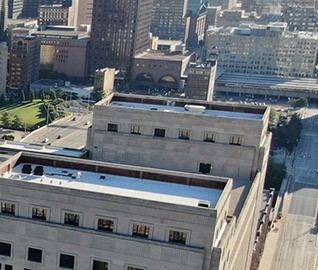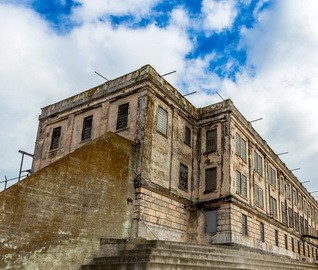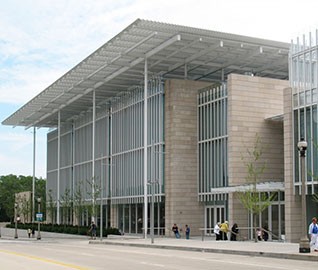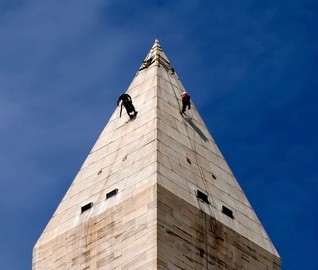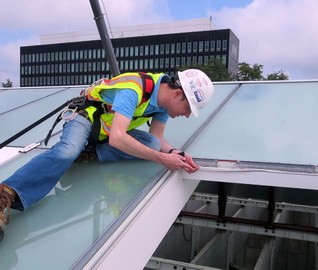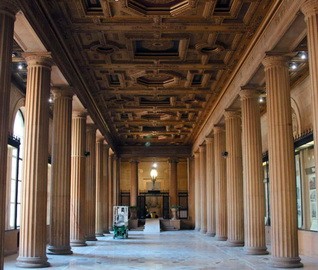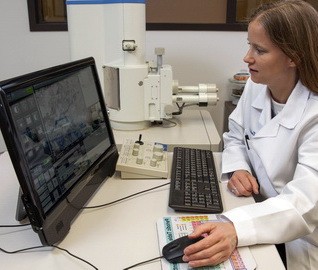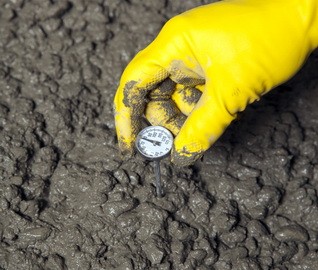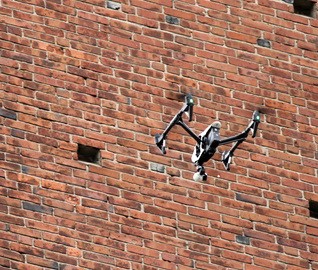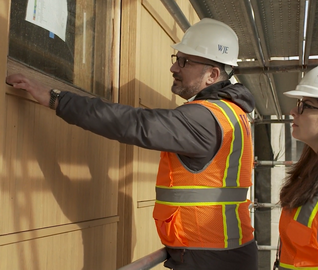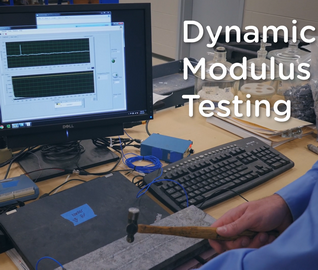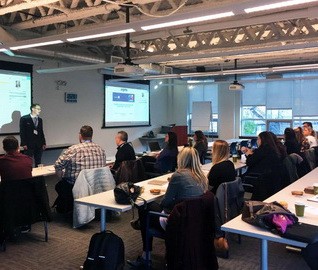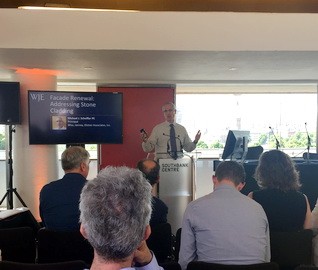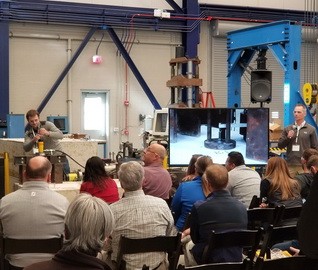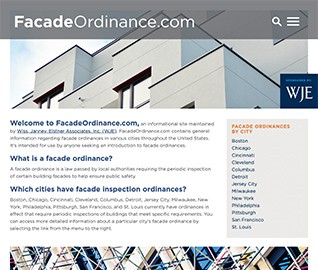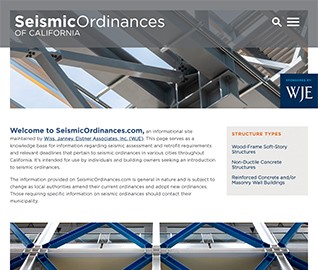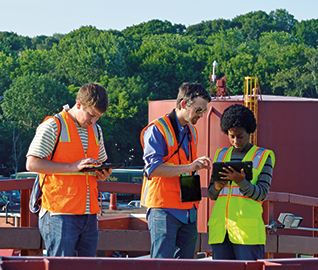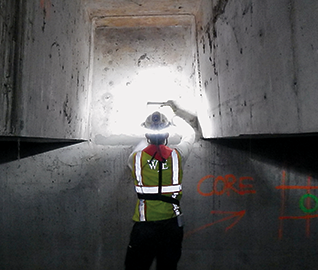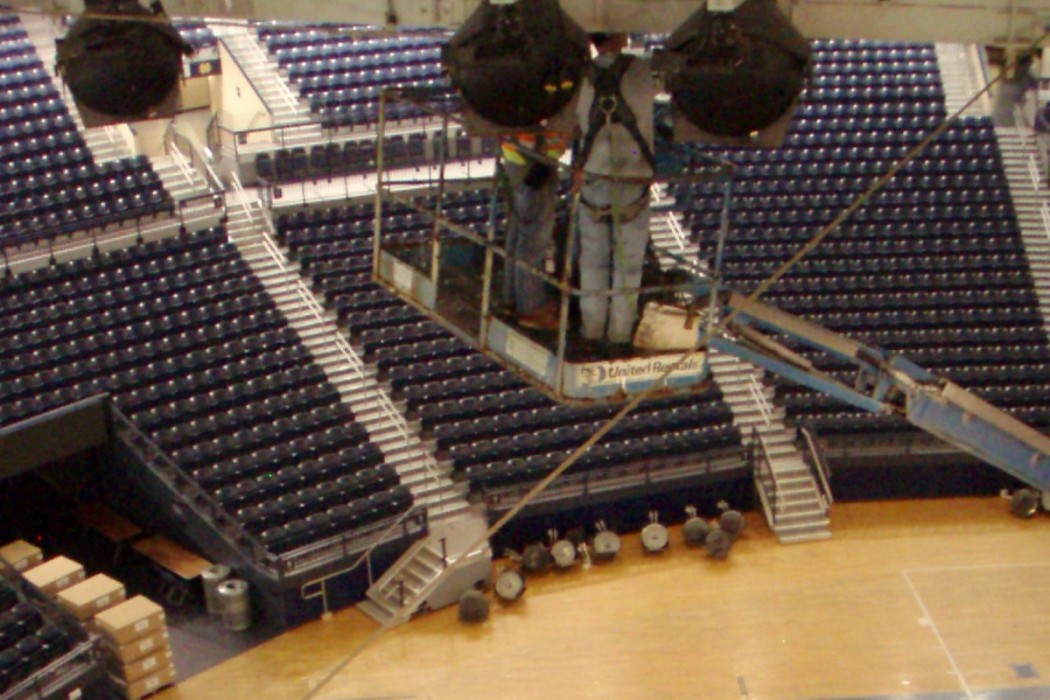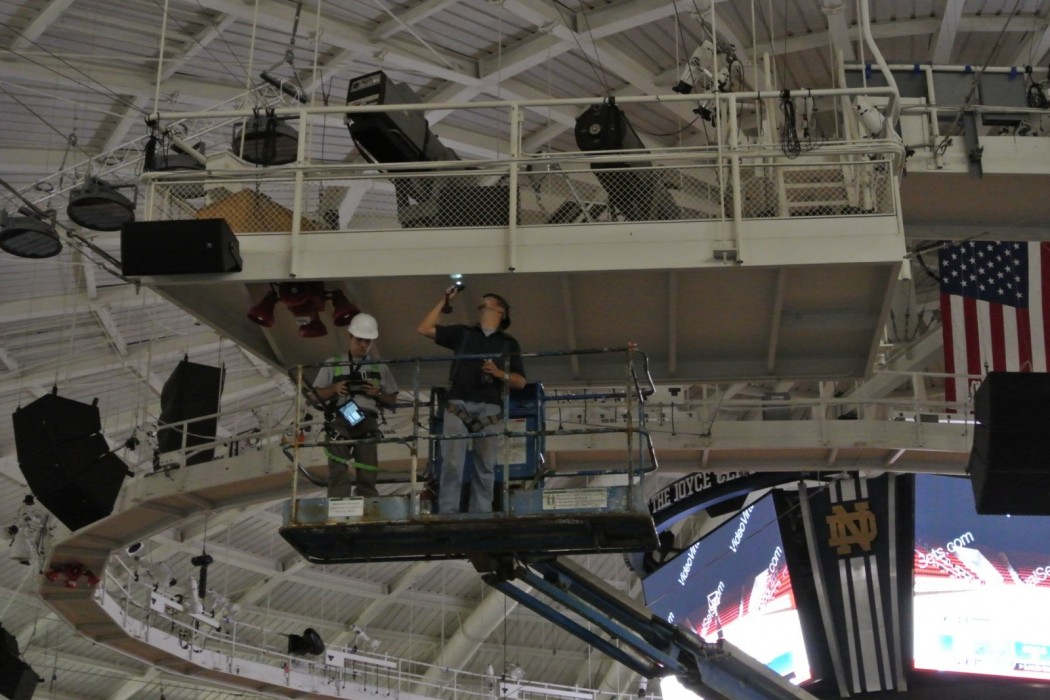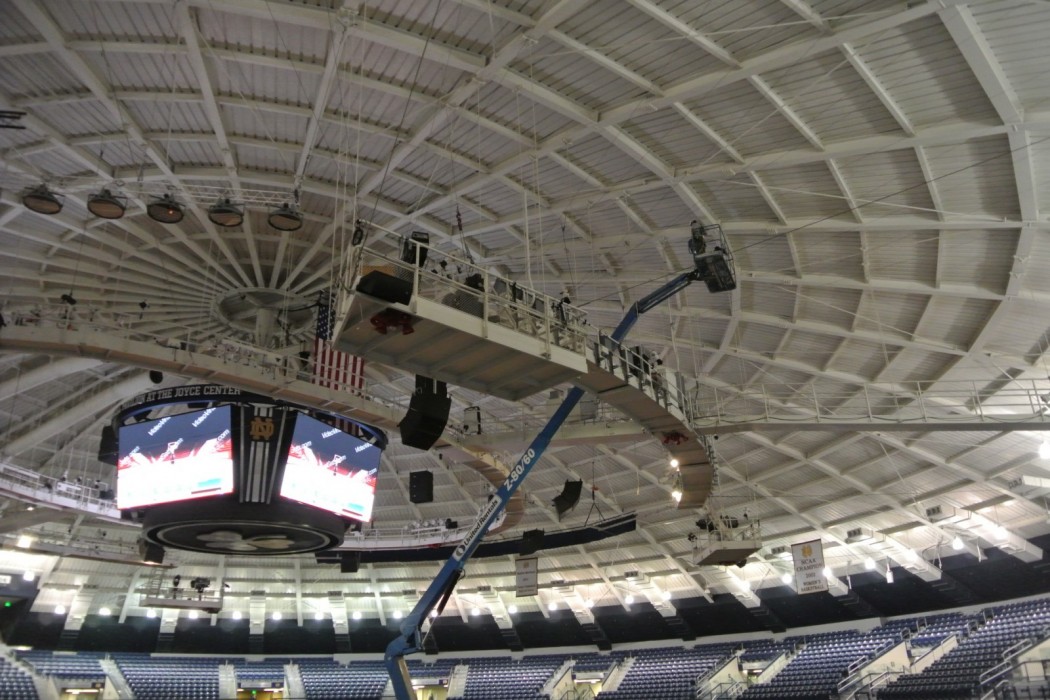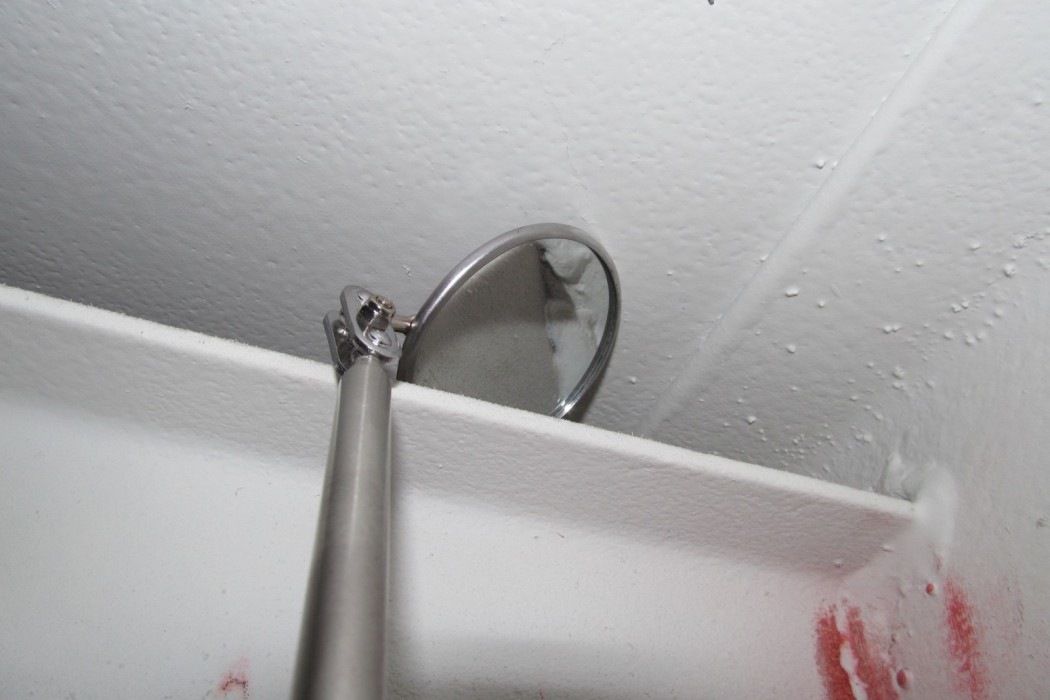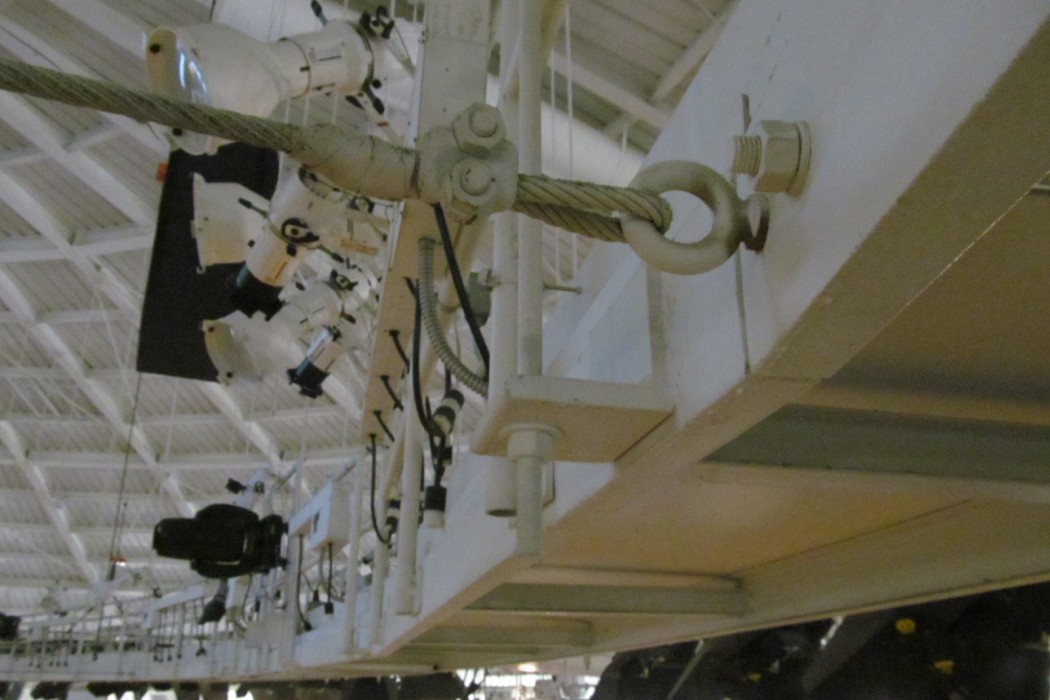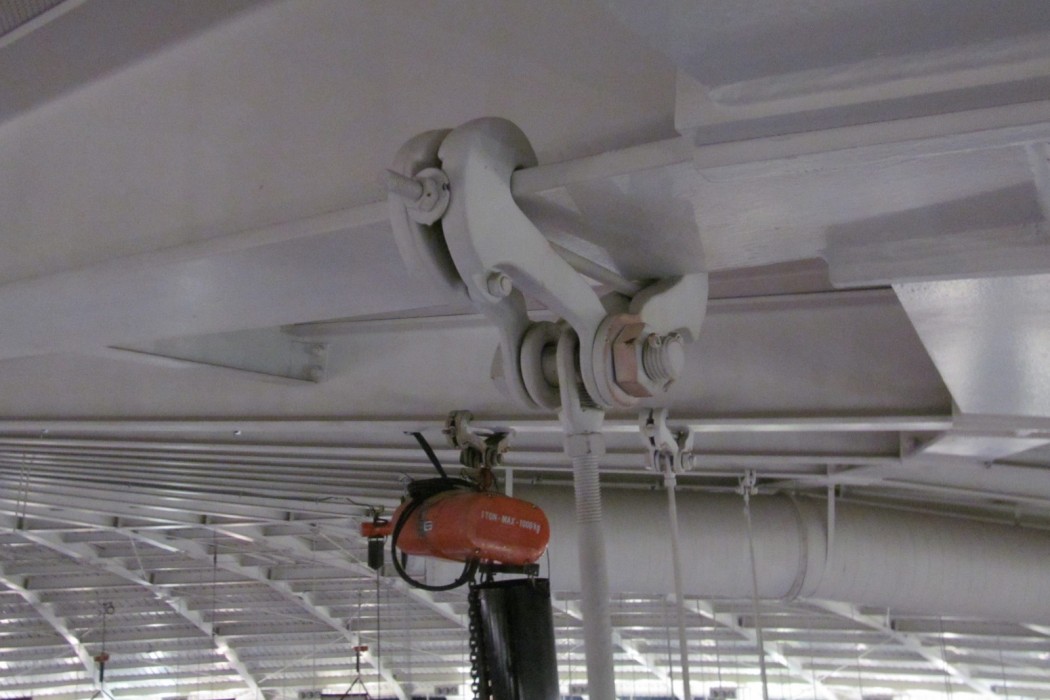WJE PROJECTS
Joyce Athletic and Convocation Center
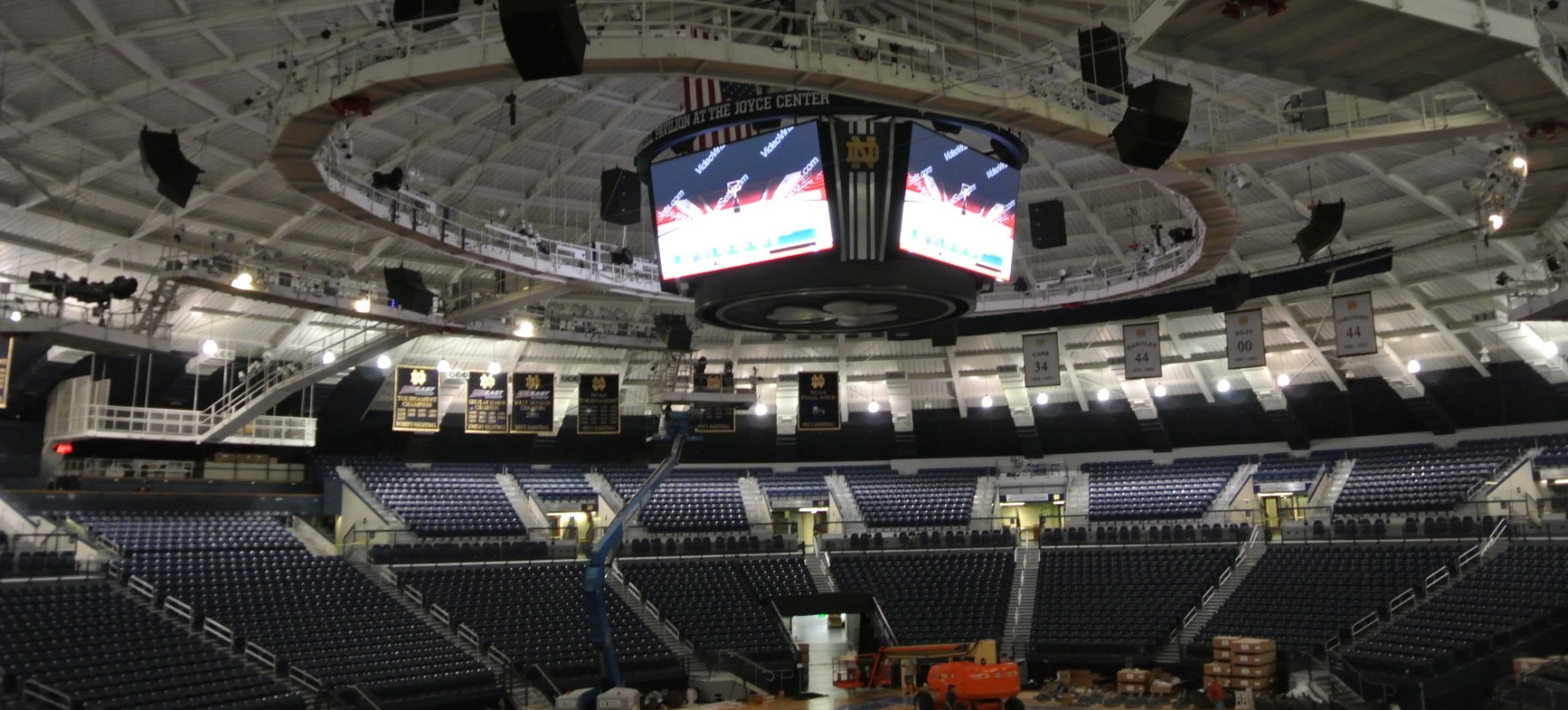

CLIENT |
University of Notre Dame |
LOCATION |
Notre Dame, IN |
Catwalk Inspection and Analysis
As part of a campus-wide safety audit, the University requested a condition assessment of the existing catwalk assembly and related components to ensure that the current conditions provide a safe working platform. Due to an extremely busy usage schedule for the arena, including university athletics, music events, conferences, and summer sports camps, the JACC was only available for investigation over a narrow two-week period.
BACKGROUND
The South Dome of the Joyce Athletic and Convocation Center, originally opened in 1968 and substantially renovated in 2008, is home to the newly named Purcell Pavilion, which hosts the University of Notre Dame men's and women's basketball and volleyball programs. A ellipse-shaped catwalk ring encircles the center of the arena, stretching approximately 103 feet in the east-west direction and approximately 65 feet in the north-south direction, where it abuts the access walks for spot platforms. The basic structure is composed of steel-edge channels suspended by threaded rod hangers that extend to the domed roof.
SOLUTION
WJE staff completed an arm's-length visual examination of all accessible members and welded/bolted connections, a hands-on tightness evaluation of each bolted connection, a catalogue of the loads of various pieces of equipment on the catwalk and catwalk rails, and a nondestructive evaluation of 10 percent of the accessible welded connections using magnetic particle test methods. All notes, dimensions, and photos were documented utilizing WJE Plannotate®. Following the field work, a three-dimensional finite element analysis model was developed to evaluate the capacity of typical in-service members compared to the original structural design loading and to determine recommended service loading limits for the current structure. The structure was determined to be in overall good condition and able to adequately support its own weight in addition to live loads and the weight of lights and other equipment. Many of the welded connections were observed to have minor defects but did not raise any significant structural concerns. However, in concert with the original safety-based initiative driving the project, WJE recommended safety modifications to the catwalk structure to meet current OSHA and industry standard regulations, including the installation of new toe boards on walkways, increased railing heights, and strengthening of some existing railing connections to withstand increased lateral loads.
RELATED INFORMATION
-
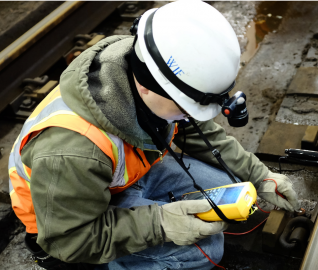 We have pioneered the use of nondestructive evaluation methods—such as ground penetrating... MORE >Services | Nondestructive Evaluation
We have pioneered the use of nondestructive evaluation methods—such as ground penetrating... MORE >Services | Nondestructive Evaluation -
 Our professionals deliver practical repair and rehabilitation services that maximize the... MORE >Services | Repair and Rehabilitation
Our professionals deliver practical repair and rehabilitation services that maximize the... MORE >Services | Repair and Rehabilitation -
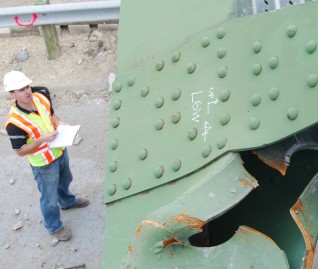 When the integrity or condition of a structure is in question, clients rely on us for answers MORE >Services | Structural Engineering
When the integrity or condition of a structure is in question, clients rely on us for answers MORE >Services | Structural Engineering



